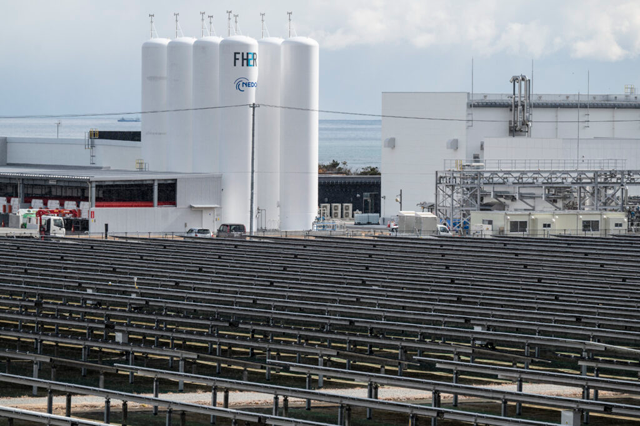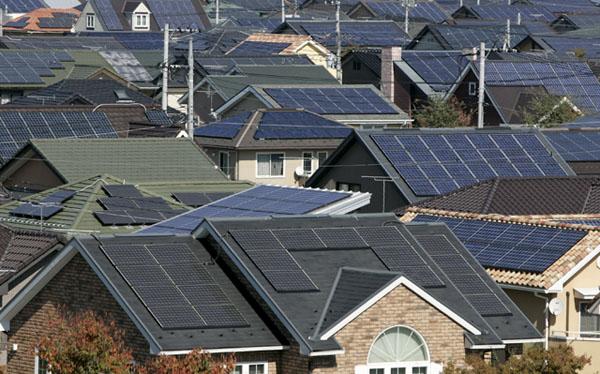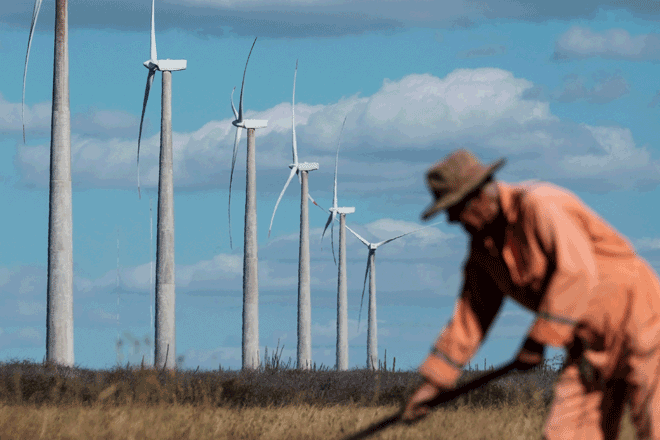You are here
Japan urged to triple renewables capacity by 2035
By AFP - Jun 26,2024 - Last updated at Jun 26,2024

The country slashed reliance on nuclear power after the Fukushima disaster in 2011 and increased use of fossil fuels to generate 70 per cent of its electricity (AFP file photo)
TOKYO — Hundreds of multinational corporations on Tuesday urged Japan to triple its capacity to generate renewable power by 2035, as the heavily coal-dependent country updates its energy policy.
Dubbed RE100, the group of more than 400 large companies that have committed to work towards using all-renewable electricity includes 87 Japanese firms such as Sony and Panasonic.
"By increasing its domestic renewables capacity, Japan can significantly improve its energy security, safeguard its international competitiveness and increase private investment in more renewables projects," the group said.
It called for Japan to use its Strategic Energy Plan — set to be unveiled later this year — to triple installed renewables capacity from 121 gigawatts in 2022 to 363 gigawatts before 2035.
At the COP28 climate talks in December, nearly 120 nations including Japan pledged to triple the world's renewable energy within seven years — a global effort in which each country's contribution may vary.
Japan, at 22.6 per cent, and the United States are the Group of Seven countries with the lowest share of renewables in their current power generation, according to International Energy Agency figures from 2022.
The Japanese government is targeting carbon neutrality by 2050 but was reluctant to set a date to phase out coal-fired power plants at this year's G7 climate meeting, where ministers agreed to a goal of the mid-2030s.
They also preserved a place for coal power if it is "abated", meaning its emissions are captured or limited by technology — something panned by many as unproven and a distraction from cutting fossil fuel use.
RE100 was founded 10 years ago by the international non-profit Climate Group in partnership with global NGO Carbon Disclosure Project (CDP), which tracks and rates companies' climate pledges.
Ahead of Japan's revised energy strategy, it has set out six policy recommendations to improve "the availability, accessibility and affordability of renewables in Japan".
The world's fourth-largest economy is heavily reliant on fossil fuels, partly because many nuclear reactors remain offline after the 2011 Fukushima meltdown.
Related Articles
One by one, Japan is turning off the lights at the giant oil-fired power plants that propelled it to the ranks of the world's top industrialised nations. With nuclear power in the doldrums after the Fukushima disaster, it's solar energy that is becoming the alternative.
RIO DE JANEIRO — Latin America is poised to become a major renewable energy producer, with nearly a billion solar panels' worth of large-sca
PARIS — Global consumption of coal reached an all-time high in 2023, the IEA energy watchdog said on Friday, as Earth experienced its hottes


















